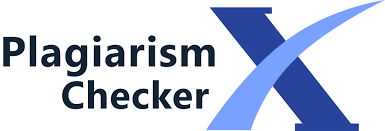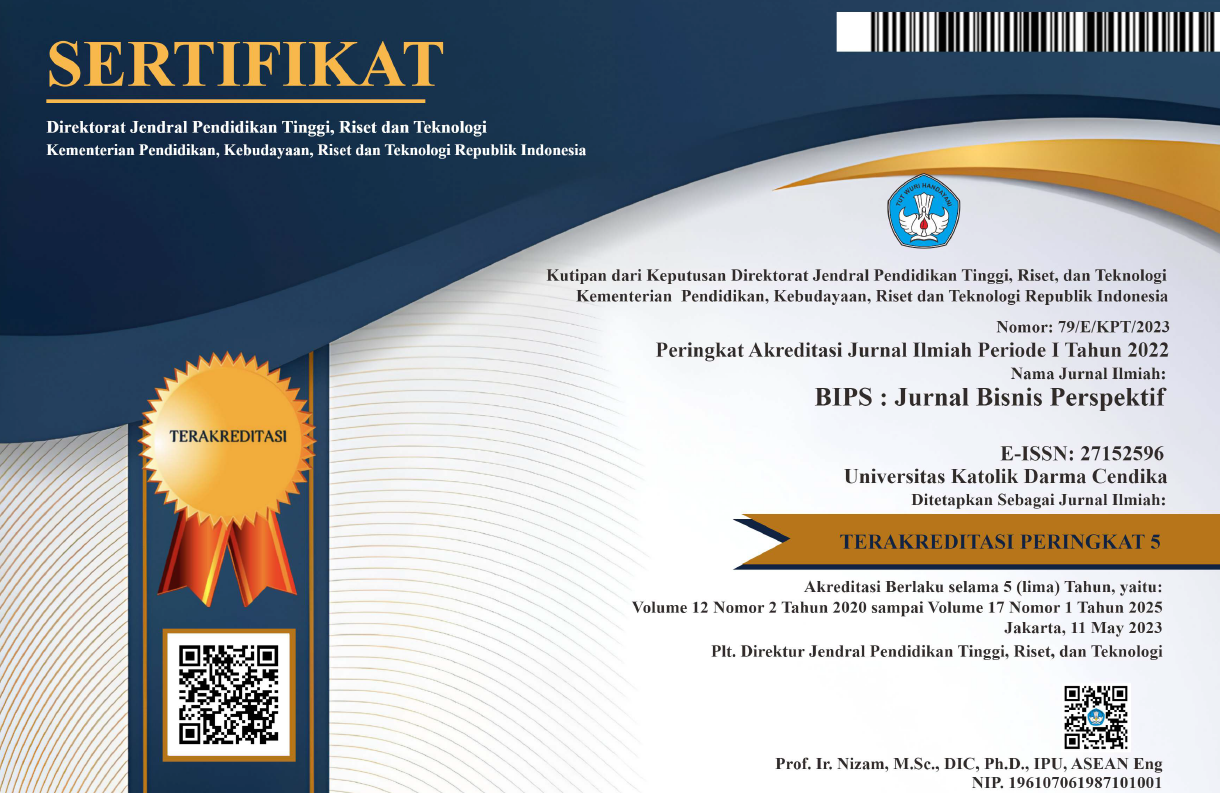Peranan Intellectual Capital Pada Intermediary Function Terhadap Return On Equity Perusahaan Perbankan
DOI:
https://doi.org/10.37477/bip.v11i1.15Keywords:
non performing loans (NPL), operational costs per operating income (BOPO), loan to deposit ratio (LDR), capital adequacy ratio (CAR)Abstract
This study aims to examine the role of Intellectual Capital in banking companies listed on the Indonesia Stock Exchange. The research data used are secondary data in the form of financial data and financial ratios of banks listed on the Indonesia Stock Exchange from 2010 to 2016 using the purposive sampling method. Based on sampling criteria, 23 banks were selected and divided into two categories: banks with low Intellectual Capital and banks with high Intellectual Capital. The results showed that there were three findings, namely the first test results on banks with low Intellectual Capital and high Intellectual Capital showed that Non Performing Loans (NPL), Operational Costs Per Operating Income (BOPO), Loan to Deposit Ratio (LDR), and Capital Adequacy Ratio (CAR) does not affect Return on Equity (ROE). Second, the results of testing on banks with low Intellectual Capital and high Intellectual Capital indicate that Non Performing Loans (NPL), Loan to Deposit Ratio (LDR), and Capital Adequacy Ratio (CAR) have no effect on Return on Equity (ROE). Third, the results of testing on banks with high Intellectual Capital indicate that Operational Cost Per Operational Income (BOPO) has an effect on Return on Equity (ROE).
Downloads
Published
How to Cite
Issue
Section
License
Authors publishing in this journal agree to the following terms:
- The author retains copyright and grants the journal rights of first publication with the work simultaneously licensed under a Creative Commons Attribution ShareAlike License License that allows others to share the work with acknowledgment of the author's work and initial publication in BIP's: Journal of Business Perspectives.
- Authors may include separate additional contractual arrangements for non-exclusive distribution of the published version of the journal (e.g., submit to an institutional repository or publish in a book), with an acknowledgment of the original publication in this Journal.
- Authors are permitted and encouraged to post their work online (e.g., in institutional repositories or on their websites) before and during the submission process, as it can lead to productive exchanges, as well as citations of previously published work.
Each author is expected to complete the copyright process with a document of the originality of the manuscript, the templated document is below:


7.png)


6.png)
2.png)


